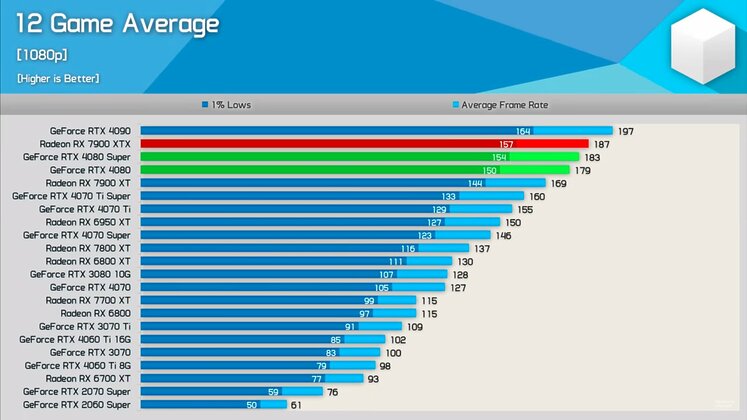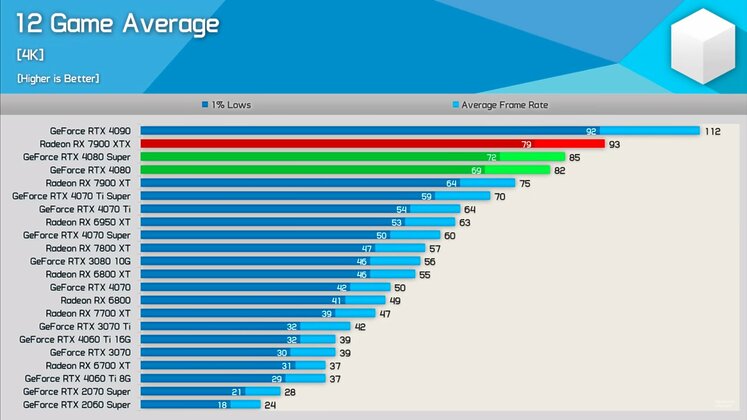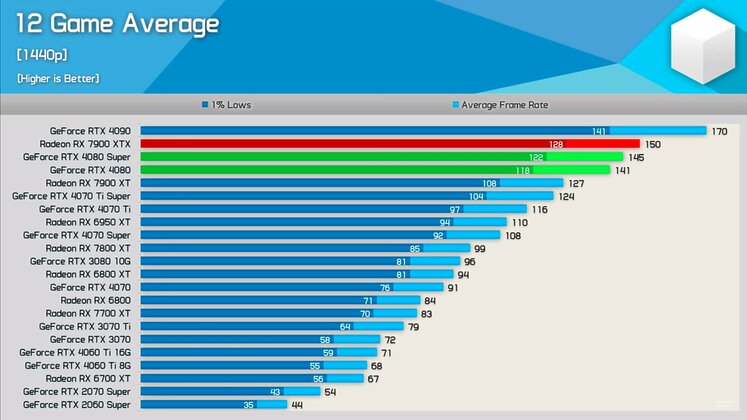- Nvidia’s latest GeForce RTX 40 Super series does not offer much more than a few price cuts.
- The GeForce RTX 4070 Ti Super and 4080 Super are nearly identical to their non-Super variants in performance.
- Nvidia should have created a Super variant for the GeForce RTX 4060.
Nvidia released its second RTX Super series refresh last month. Following a well-received RTX 20 Super series, I expected similar improvements for the flawed GeForce RTX 40 series.
So, what does the new Super word mean for the GeForce RTX 40 lineup? Well, the results are all over the place, and the word Super can basically mean anything from an okay performance improvement to a stealth price drop.
The GeForce RTX 4070 Super, in my opinion, is the only card among the bunch that offers a sizable improvement. With the same MSRP, this card is closer in rasterization performance to the GeForce RTX 4070 Ti.
However, this also comes with a disadvantage. Since this card is up to 20% faster, it can become handicapped with the 12GB of VRAM when used at higher resolutions like 1440p and 4K.
The GeForce RTX 4070 Super is being purposely held back by Nvidia. Once memory limits come into play, you need to pay an additional $200 to buy the more capable GeForce RTX 4070 Ti Super.
Poor Value & Disappointing Performance
The GeForce RTX 4070 Ti Super is built on the AD103 GPU and features 16 GB of GDDR6X memory. However, it only offers a 3-6 % performance improvement over its predecessor.
I would argue this GPU needed to ship with this memory setup from the beginning. Therefore, the subtle upgrade has failed to impress me and most others who expected a bigger improvement for the $800 price point.
Even worse is the GeForce RTX 4080 Super. While it seems to be high in demand, its performance is practically identical to the non-Super variant, with certain scenarios showing up to 5% improvement.
However, the card is now $200 cheaper while offering similar performance. This makes its dollar-by-frame value similar to the GeForce RTX 3080, but I expect improvement in this department each generation.
Nvidia’s current strategy is taking the PC market toward stagnation. The company seems to be repeating a scenario observed with the launch of the GeForce RTX 20 series, which shipped with increased prices without the performance benefits many had expected.
This strategy didn’t work well. It is also why the GeForce RTX 30 series was received so well and did not need a mid-cycle refresh. However, Nvidia currently has a lot of competition compared to back then.
AMD, in particular, has better value propositions this year with its Radeon RX 7900 XT and 7900 XTX, offering both performance and a sizable memory upgrade over Nvidia. Meanwhile, the Green team seems to be focused exclusively on high-end graphics cards.
What About the RTX 4060 Super?
This leaves those with less than $500 to spend without much of an option. While the GeForce RTX 2060 Super was offered for $400 at launch, we didn’t see something similar from Nvidia this year in the form of a GeForce RTX 4060 Super.
A theoretical GeForce RTX 4060 Super with 12GB of memory and higher bandwidth for $400 would have been quite the release if it offered a 15-20% improvement over the current models.
Instead, Nvidia chose to only lower the price of the GeForce RTX 4070 by $50. This effectively shows that the Super series was a flashy way for the Green team to lower prices, not doing much to address the core grievances of PC gamers.
Benchmarks via HardwareUnboxed
Thank you! Please share your positive feedback. 🔋
How could we improve this post? Please Help us. 😔
[News Editor]
Obaid is pursuing a Law degree while working as a content writer. He has worked as a gaming writer for over three years because of his passion for the medium and reporting the latest updates in the industry. Having played hundreds of games, Obaid finds himself coming back to Elden Ring, Cyberpunk 2077, and Red Dead Redemption 2, with these games being among his favorites. He has also been mentioned on highly regarded websites, such as Wccftech, Metro UK, PS Lifestyle, GamePressure, VGC, and Gamespot.







